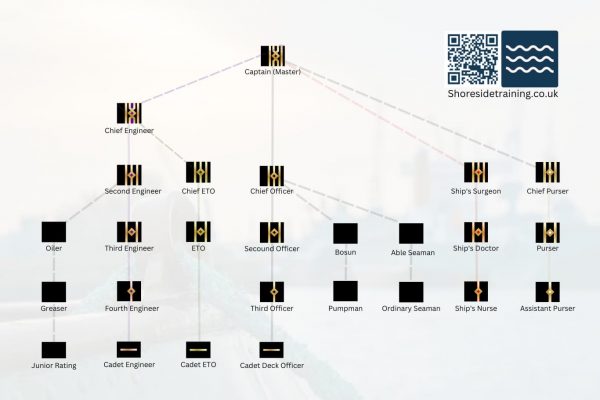From Classroom to Ocean Waves: How Teachers Can Set Sail for a New Career
Are you a teacher craving a change of scenery and a sense of adventure? You might be surprised to learn that your skills as an educator are more versatile than you think. The maritime industry offers a plethora of opportunities for those looking to escape the confines of the classroom and embark on a journey across the world’s oceans. In this article, we will explore some of a teacher’s most transferable skills and the roles perfectly suited for those seeking a career at sea, such as super yacht butler and private tutor.
Transferable Skills
Communication
Teachers excel at communicating complex information to diverse audiences. This skill is invaluable in the maritime world, where clear and concise communication is essential for crew members working in various roles and navigating international waters.
Adaptability
As an educator, you’ve likely had to adapt your teaching style to the unique needs of your students. This adaptability is a key asset for life at sea, where you’ll encounter new challenges, environments, and cultures daily.
Problem-Solving
Teachers are natural problem solvers, adept at finding creative solutions to help their students succeed. This ability to think critically and troubleshoot issues is vital in the maritime industry, as every voyage presents unique challenges.
Time Management
Educators are masters of juggling multiple responsibilities and deadlines. This skill translates well to life on a vessel, where punctuality and efficiency are crucial for a smooth and successful journey.
Leadership
Teachers are often required to take charge of their classrooms, leading students and managing group dynamics. This leadership experience can be invaluable in a maritime setting, where a strong team dynamic and clear chain of command are essential for success.
Career Opportunities
Super Yacht Butler
If you’ve ever dreamed of working on a luxurious vessel catering to high-profile guests’ needs, a superyacht butler career may be the perfect fit. Your experience managing a classroom and attending to the diverse needs of your students will serve you well in this role, where you’ll be responsible for ensuring that guests have a flawless experience on board.
Private Tutor
As a teacher, you already possess the skills and qualifications to work as a private tutor. Many affluent families and yacht owners seek qualified educators to provide personalised instruction to their children while travelling the world. This role allows you to combine your love for teaching with the excitement of visiting new destinations.
Cruise Ship Crew
Many teachers find fulfilling careers as part of a cruise ship crew. With roles ranging from entertainment and enrichment staff to guest relations and shipboard management, you can leverage your teaching background to excel in various positions within the cruise industry.
Maritime Instructor
Share your passion for education with aspiring maritime professionals by becoming a maritime instructor. Whether you specialise in navigation, safety, or crew management, you can apply your teaching expertise to train the next generation of maritime professionals.
Step-by-Step
The maritime industry offers many rewarding career opportunities for individuals looking to change careers. For teachers seeking a new challenge, the skills and experiences gained in the education sector can be valuable assets when transitioning to life at sea. This step-by-step guide outlines the qualifications and steps needed for teaching professionals to begin working aboard a ship.
Step 1: Research and identify your desired maritime career path
The first step is to explore the different career paths available in the maritime industry. Some possible roles for teachers include maritime instructor, ship’s officer, cruise ship lecturer, or crew member in various departments. Research the specific skills, qualifications, and certifications needed for your chosen path.
Step 2: Obtain necessary maritime qualifications
Once you have identified your desired career path, acquire the necessary maritime qualifications. These may include:
a. STCW (Standards of Training, Certification, and Watchkeeping) Basic Safety Training: This certification is mandatory for all seafarers. The course covers Personal Survival Techniques, Fire Prevention and Fire Fighting, Elementary First Aid, and Personal Safety and Social Responsibilities.
b. Additional STCW courses: Depending on your chosen career path, you may need to complete other STCW courses, such as Advanced Fire Fighting, Medical First Aid, or Fast Rescue Boats.
c. Maritime-specific certifications: Some roles may require further specialised certifications. For instance, if you’re interested in becoming a maritime instructor, you may need to complete a Train the Trainer course.
Step 3: Gain experience and relevant skills
To successfully transition from a teaching role to working aboard a ship, you must gain relevant experience and hone your skills. Some ways to achieve this include:
a. Volunteering or interning at maritime organisations to gain hands-on experience.
b. Participating in maritime-related workshops, seminars, or conferences to network with industry professionals and learn about the latest trends.
c. Developing transferable skills like communication, teamwork, and leadership, which are crucial in the maritime sector.
Step 4: Update your CV and apply for jobs
With the necessary qualifications and experience, update your CV to highlight your skills and achievements relevant to the maritime industry. Tailor your CV and cover letter to the specific job you’re applying for, emphasising your teaching background and how it can contribute to your new career.
Step 5: Prepare for interviews
Before attending job interviews, research the company and the specific role you’re applying for. Be prepared to discuss your teaching experience and how it can benefit your new maritime career. Familiarise yourself with industry-specific terminology and demonstrate your maritime safety and regulations knowledge.
Conclusion
As a teacher, your unique skill set and passion for education can open the doors to a world of adventure. Embrace the opportunity to escape the classroom and embark on a career that will take you to the far corners of the globe. Whether you choose to work as a superyacht butler, private tutor, or in another maritime role, the horizon is waiting for you to set sail.
Transitioning from a teaching career to working at sea can be a challenging but fulfilling experience. With the right qualifications, relevant experience, and a strong CV, teaching professionals can successfully embark on a new adventure in the maritime industry.




